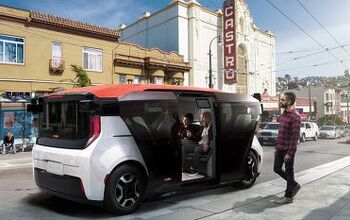Wells Fargo Places Cap On Subprime Loans
Wells Fargo will rein in its subprime lending business, limiting subprime car loans to 10 percent of auto loans it originates. According to the New York Times, the move comes amid concerns that the market for subprime car loans is expanding too quickly.
While the paper’s Dealbook section notes that Wells Fargo has a strong reputation for managing risk, the move to limit subprime auto loans also sends a signal that the subprime auto loan market has become too risky. Concerns have previously been raised regarding lax underwriting practices and increasingly long loan terms driven by a demand in securities backed by subprime auto loans.
According to Dealbook, the 10 percent figure is in line with how many subprime loans are originated by Wells Fargo compared to prime loans. But the move comes as increasingly longer terms become the norm in the subprime space, since even repossessing a car and re-selling it is often insufficient to recoup the losses on a loan with a term of 84 months.
The recent jump in new car sales is also cited as another factor behind the decision. During the recession of 2008, new car sales plummeted, leading to a diminished supply of used vehicles in 2012 and beyond. The result was a significant spike in prices of used cars, which enabled lenders to reap higher profits when originating used car loans. But the record sales of new cars in 2013 and 2014 will inevitably lead to a glut of used cars, which should further depress used car prices (or return them to an appropriate level, depending on one’s perspective). The first crop of cars from this time period should enter the market next year, and Wells Fargo’s move could be seen as a pre-emptive move to hedge against this event.
Another theory that hasn’t been explored yet is the 7th anniversary of the Great Financial Crisis. This is a significant milestone, since it will allow the first crop of individuals who suffered bankruptcies or other black marks on their credit report to get a fresh start and have those blemishes erased from their files. That means that subprime financing will no longer be absolutely necessary for them. A new car dealer may be willing to give them a loan at a lower interest rate for something new and shiny. If that happens, then expect to see demand for subprime loans on used vehicles wither, as America’s insatiable desire for new vehicles is fueled even further.
More by Derek Kreindler
Latest Car Reviews
Read moreLatest Product Reviews
Read moreRecent Comments
- Lorenzo Yes, they can recover from the Ghosn-led corporate types who cheapened vehicles in the worst ways, including quality control. In the early to mid-1990s Nissan had efficient engines, and reliable drivetrains in well-assembled, fairly durable vehicles. They can do it again, but the Japanese government will have to help Nissan extricate itself from the "Alliance". It's too bad Japan didn't have a George Washington to warn about entangling alliances!
- Slavuta Nissan + profitability = cheap crap
- ToolGuy Why would they change the grille?
- Oberkanone Nissan proved it can skillfully put new frosting on an old cake with Frontier and Z. Yet, Nissan dealers are so broken they are not good at selling the Frontier. Z production is so minimal I've yet to see one. Could Nissan boost sales? Sure. I've heard Nissan plans to regain share at the low end of the market. Kicks, Versa and lower priced trims of their mainstream SUV's. I just don't see dealerships being motivated to support this effort. Nissan is just about as exciting and compelling as a CVT.
- ToolGuy Anyone who knows, is this the (preliminary) work of the Ford Skunk Works?


































Comments
Join the conversation
Eh - risk averse? Does anyone recall Wells Fargo had to be BAILED OUT during the great financial crisis, due to subprime lending, or it would have disappeared? Also, it was one of the last of the big banks to repay it's bailout loan? If subprime auto loans are making Wells Fargo nervous, I suspect they are really, really bad news.
WF, at the time of the bailout requested to be left out of the entire process as they did not need the funds. They were however advised they had to TARP funds. This is documented in Tim Rattners book extensively. The CEO of the time at WF, the name eludes me, was understandably pissed they were being lumped into the same group as Citi, BofA, Lehmann Etal. As for Sub Prime Auto lending, this will not even be a blip on the radar, in fact may help some other lenders shore up their sub prime business as WF typically on bought the 'best of the worst' so to speak. I would bet the reason has a lot to do with the cross sell opportunities that exist within the FICO band of Sub prime and a decision was made the efforts were not worth the reward. WF's primary goal, when I worked for them, was the cross sell. Move every customer to checking account with two other products attached (mtg, heloc, car note, debit/credit card, investments account etc). These are very profitable customers for them and generally have a low churn.